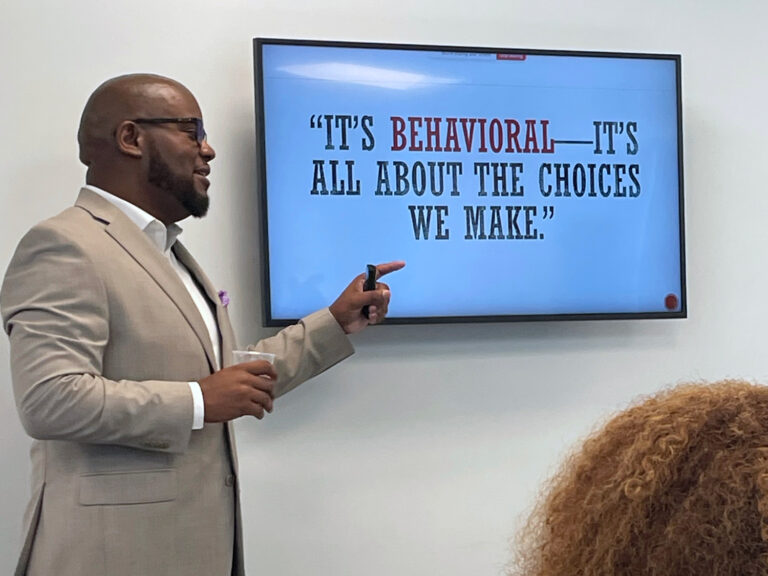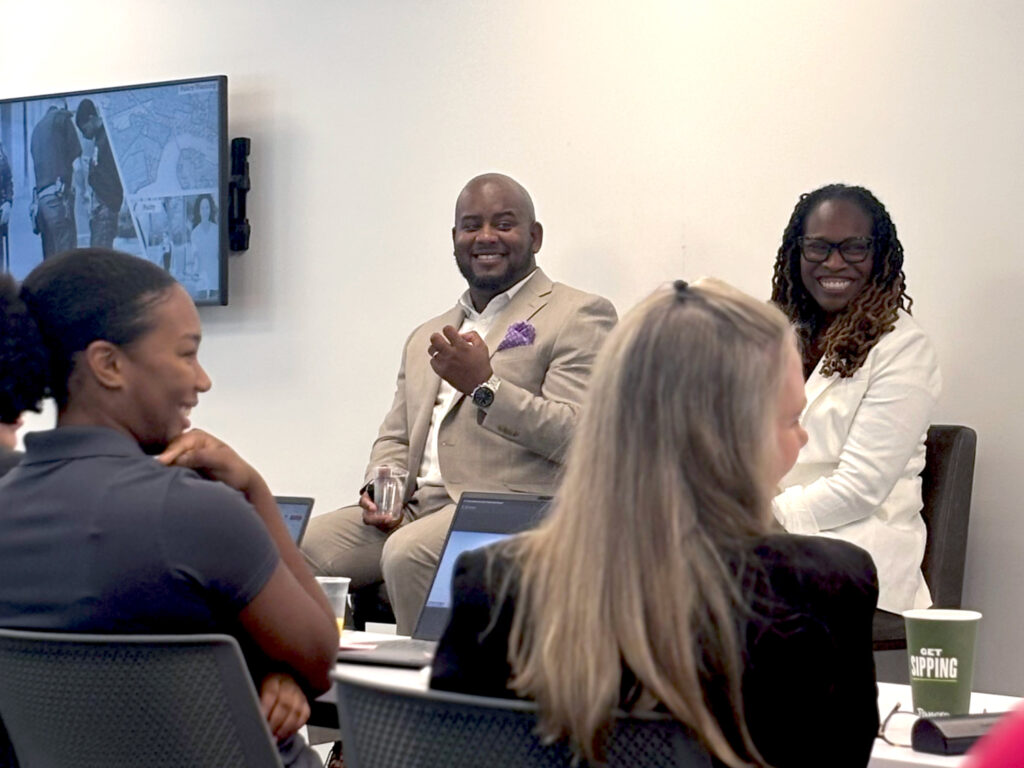Last month, our Silver Spring headquarters welcomed Charles T. Brown, author of Arrested Mobility, for a conversation on how we can all do better to create environments where all people can exist, move, and thrive. In addition to our Silver Spring staff, guests included staff from COMTO and other likeminded companies, as well as virtual attendance by our staff in other Toole Design locations.
Charles’s book — and podcast of the same name — offers a frank, insightful look at the policies and structures that limit Black people and other marginalized communities from moving freely through their cities. The presentation enriched our understanding of his book and served as a reminder of how crucial our mission is to create transportation networks that are safe and accessible to all.
Key Themes in Arrested Mobility
One emphasis of his presentation was the value of a public health approach. As Charles explained, “Race in many ways determines one’s place, which in many ways determines one’s health.” Social and institutional inequities shape our living conditions, influence our behaviors, and ultimately affect life expectancy.
Charles also emphasized the importance of getting outside our own bubbles — traveling to other cities or regions to see the opportunity and potential. He reminded us, “You cannot be a great engineer, you cannot be a great planner, if you don’t go to other places.”
Finally, Charles urged everyone to see the implications of their planning and engineering work. “We’ve got to think about creating spaces where all people can exist,” he said. The plans and designs we develop are not ahistorical or neutral. People may say that nothing is stopping anyone from using a bike lane, but the criminalization of Black bodies in public space is a very real roadblock.


Moving Forward Together
The presentation was followed by a lively discussion about a variety of topics, including the precarious role of the Disadvantaged Business Enterprise (DBE) program. Jennifer Toole expressed the transformative power of the DBE program, which helped Toole Design gain a foothold in the industry and which helps to level the playing field for women- and minority-owned firms in an industry increasingly dominated by large firms. The DBE program isn’t perfect — the certification process can be a heavy lift for fledgling firms, often just one or two people — but it remains an incredible opportunity.
Our conversation with Charles was a hopeful reminder that change is possible when we work together to create spaces where all people can thrive. As he states at the end of his book’s introduction, “Change is possible, and it starts with all of us.”
Charles, thank you again for coming to speak with us and for your leadership in this industry!


